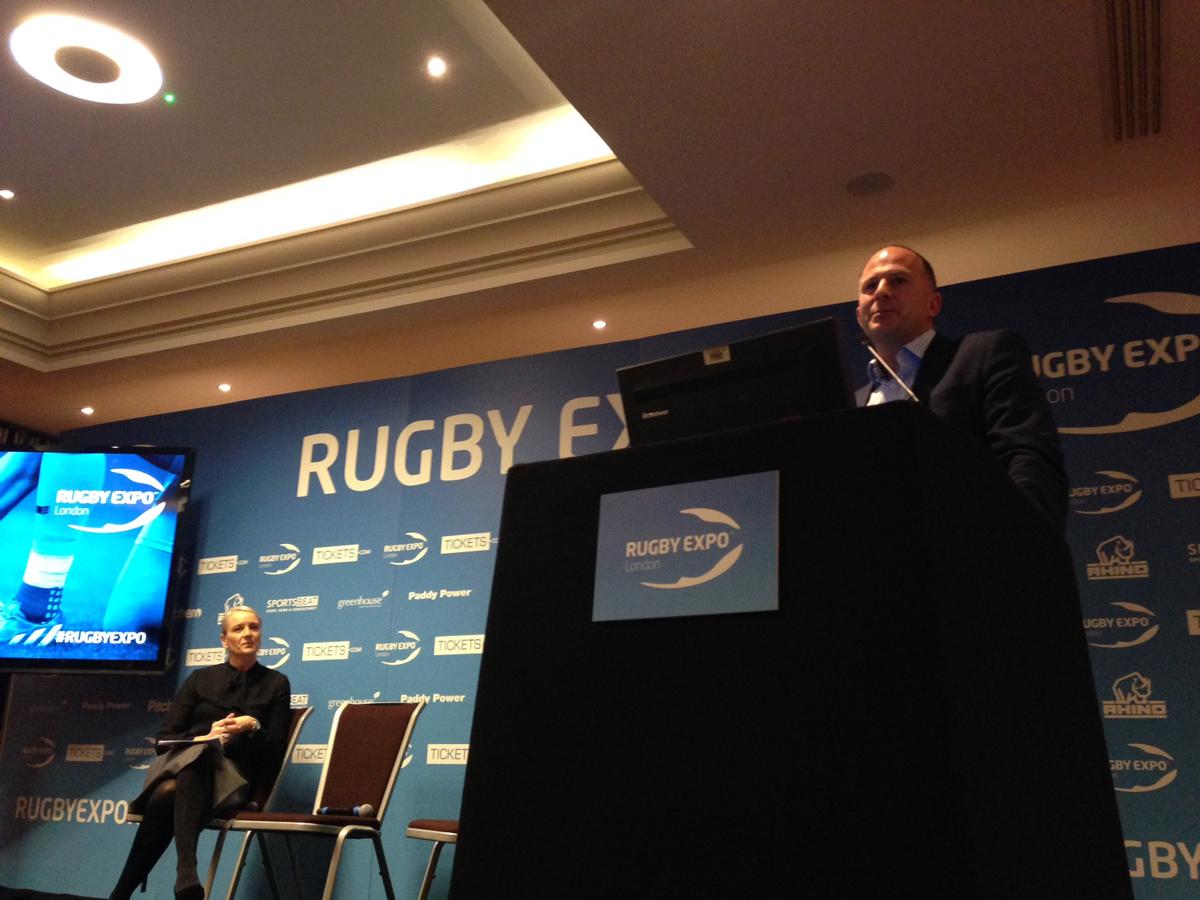see all jobs
RFU execs reveal strategy to boost youth participation
Improvements to clubhouses, a focus on coaching and investment in artificial pitches have been highlighted as ways to improve and maintain adolescent participation in rugby.
During a presentation at today’s Rugby Expo (27 November), Rugby Football Union (RFU) development director Steve Grainger MBE said the body was committed to its continued investment in facilities after ploughing £10m into clubhouse improvements
He revealed that rugby clubs across the country had benefitted from a total investment of £38m after club volunteers raised a further £28m – an achievement Grainger hailed as “phenomenal”.
Grainger said that improvements to bar areas and social spaces were needed to entice “18, 19, 20-year-olds” in the face of competition from coffee shops, modern pubs and wine bars.
“We don’t just want them going into the changing room, going out and playing and then going home,” he said. “We need them in the clubhouse, we need that camaraderie to stay true to the game.
“Over the next four years we will be continuing with these sorts of programmes, we will be continuing to invest and support investment into our club facilities. It’s crucial; it’s one of the unique selling points of our sport.”
The former Youth Sports Trust chief executive pinpointed the importance of good coaching for players aged 15 to 19, and called on retiring players to nurture the development of youngsters.
He said finding coaches for players in that age bracket was one of the RFU’s “biggest challenges” – highlighting the age bracket as a crucial period that would decide whether they committed to or left the game depending on the quality of their experience.
“That age group needs and wants quality coaching,” he told delegates. “They want people who understand the technical and tactical side of the game – those currently playing the game.”
Grainger also revealed that the RFU was on track to deliver its target of getting 750 state schools that were not currently playing rugby to play the sport by the Rugby World Cup in Japan in 2019.
The plan, launched in September 2012, has seen 402 schools come on board with four more years to hit the target. The development chief said that schools had embraced rugby “by and large”, as it fostered “teamwork, respect and sportsmanship” in its pupils.
At a later session, Grainger’s RFU colleague, head of club development Simon Winman, said that there was an ambition to add to the 60 rugby-compliant artificial pitches that can be found across the country to make the sport more accessible, particularly to 16-25 year-olds.
He said that while the playing pool in England was bigger than it was 5-10 years ago, the amount of times people played per week had fallen due to “social lifestyle interventions”.
Artificial pitches, according to Winman, would allow people to play when they wanted with fewer restrictions than turf pitches.
Winman said the RFU had to “be creative” in finding partnerships to share the investment in the pitches, and it was working with the Football Foundation to lay surfaces compliant for both rugby league and union. He earmarked a 10-year period for the investment plan, but told delegates that the details around funding and ownership still needed to be ironed out.
More News
- News by sector (all)
- All news
- Fitness
- Personal trainer
- Sport
- Spa
- Swimming
- Hospitality
- Entertainment & Gaming
- Commercial Leisure
- Property
- Architecture
- Design
- Tourism
- Travel
- Attractions
- Theme & Water Parks
- Arts & Culture
- Heritage & Museums
- Parks & Countryside
- Sales & Marketing
- Public Sector
- Training
- People
- Executive
- Apprenticeships
- Suppliers
















































